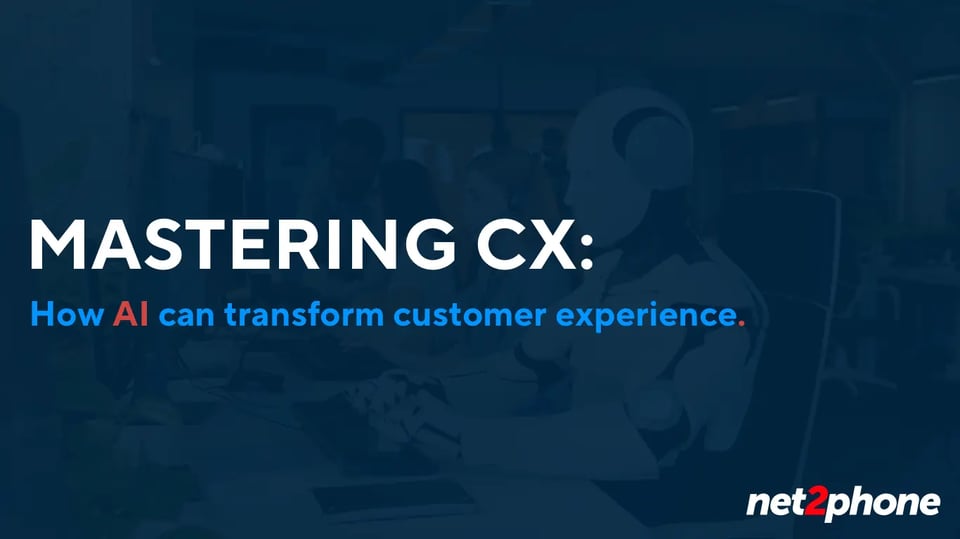
Today’s customers want more than just products and services, they want delightful experiences.
Personalized experiences, seamless interactions, and positive experiences are what customers have come to expect. As a result, businesses across industries are emphasizing customer experience (CX) more than ever before.
A superior CX ensures customer satisfaction, fuels repeat purchases, generates positive word-of-mouth, and drives revenue growth.
AI, with its rapid growth and widespread accessibility, is a powerful tool to elevate CX strategies. AI can help businesses uncover customer preferences, anticipate needs, personalize interactions, and resolve issues quickly.
Let’s explore how AI can help your organization deliver outstanding customer experiences.
AI and Customer Experience: A Winning Combination

Before diving into how AI enhances customer experience, let's first understand the core components of both.
Artificial Intelligence (AI) refers to computer systems that can perform human-like tasks. The machines use machine learning and natural language processing (NLP) techniques to learn from data, recognize patterns, make decisions, and solve problems—mimicking human thinking.
Customer experience (CX) refers to a customer's interactions throughout every touchpoint with a brand. These touchpoints span from initial awareness to post-purchase support. Creating a seamless, personalized, and positive customer experience is the key to providing excellent customer experiences.
AI is a powerful tool for improving CX. It uses data to quickly generate insights that can be used to personalize interactions, predict customer needs, and automate processes. Adding AI to your CX efforts allows you to create customized services, quickly solve issues, predict outcomes, and simplify customer journeys. Overall, using AI can assist organizations in providing exceptional experiences, resulting in stronger relationships with customers.
Related: 10 Types of Customer Experience Platforms to Use In Your Business
8 Amazing Ways AI Can Enhance Customer Experience
Artificial Intelligence (AI) is emerging as a game-changer, offering innovative solutions to elevate CX strategies. Here, we'll showcase how AI technologies can advance CX strategies.
1. Personalization for Stronger Relationships
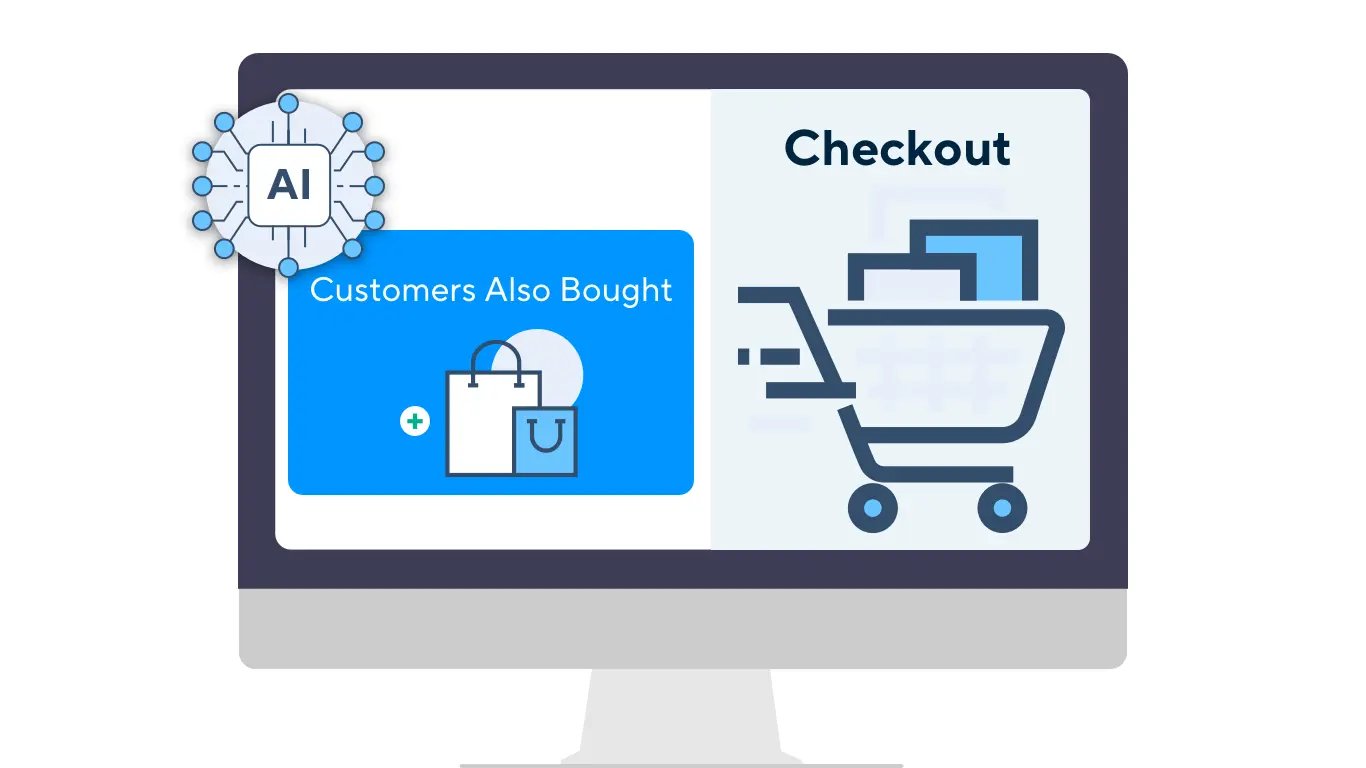
Sixty percent of consumers say they will purchase again after a personalized shopping experience. AI can help you achieve this level of loyalty by analyzing your customer’s behavior and preferences.
Take, for instance, an e-commerce platform. When users are browsing the website, AI algorithms can automatically recommend products based on past purchases or suggest personalized deals tailored to individual preferences.
Think of times when you’re browsing an e-commerce website, and it says ‘you might like’ or ‘customers also bought’ with additional product recommendations; AI powers these.
This type of tailored product recommendations help customers find products they may not have known about. In fact, Barilliance found in a study that personalized product recommendations significantly increased average order value, with product recommendations accounting for up to 31% of e-commerce site revenue.
Related: What is Customer Lifetime Value?
2. Offer 24/7 Support with Chatbots
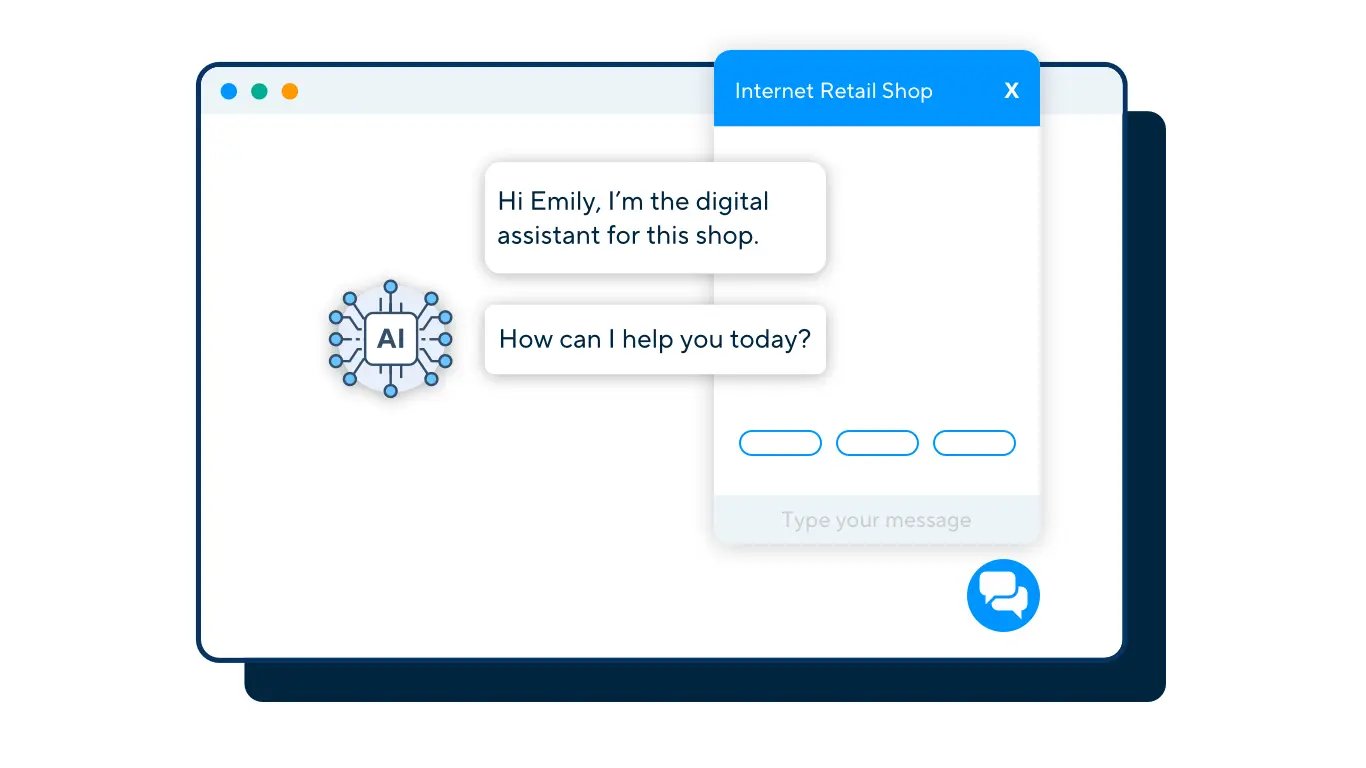
AI-powered chatbots also known as AI agents ensure your customers can receive immediate assistance at any time. Most consumers would rather avoid lengthy wait times to speak with an agent. Between waiting 15 minutes to speak to an agent or talk to a chatbot immediately, 62% of consumers chose the chatbot.
Unlike rule-based counterparts, AI chatbots like net2phone's AI Agent engage in more human-like conversations, using techniques that include machine learning and natural language processing (NLP). AI chatbots can understand context, interpret intent, and offer more nuanced responses, creating a more conversational and user-friendly experience.
What sets AI agents apart is their continuous learning and adaptability. They learn from interactions, allowing them to evolve and provide more accurate and contextually relevant information over time. They can process any input provided by the user and provide feedback beyond predefined rules.
Additionally, these chatbots leverage user data to offer personalized recommendations, taking into account preferences, history, and behavior. They excel in automating routine tasks, allowing human agents to focus on intricate or high-value interactions.
For instance, a customer interested in purchasing a laptop might ask a retailer's chatbot for recommendations. In this case, net2phone’s AI Agent would apply the product information and decision criteria the retailer trained it with to identify the customer's needs and suggest suitable options. The AI agent can provide detailed information about each product and even guide the customer through the purchase process.
3. Enhance Communication with Sentiment Analysis
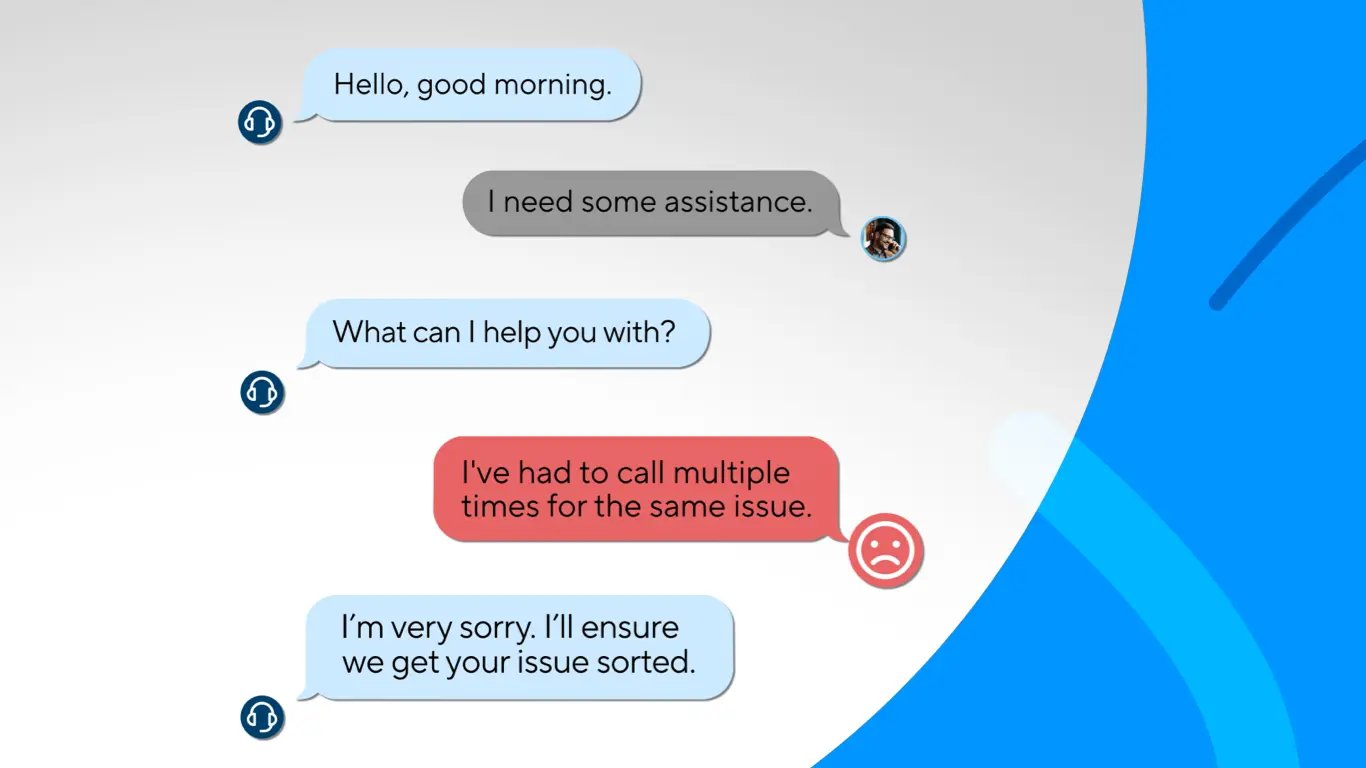
Sentiment analysis powered by artificial intelligence identifies the emotions expressed within text, like transcripts, reviews, or social media posts. Sentiment analysis typically categorizes emotions as positive, negative, or neutral.
More advanced sentiment analysis models can provide more granular classifications of emotions such as joy, anger, and sadness. Taking into account a person's feelings allows you to tailor your communication accordingly.
Consider the case where a customer expresses frustration during a support call. AI can detect this sentiment, prompting your team to adjust their tone and resolve the issue more empathetically. This kind of communication builds trust and rapport with your customers.
4. Prevent Churn with Predictive Analytics

Using AI, predictive analytics forecasts future outcomes based on historical data patterns. With access to this information, you can prevent customer service issues before they occur.
Consider the case of a subscription-based service. AI can predict a customer's likelihood of canceling their subscription by analyzing engagement metrics like frequency of logins, duration of usage, and changes in usage patterns. The system can then offer personalized incentives to retain customers before they consider leaving. Alternatively, it can alert your customer success team to get in touch with the customer. This proactive strategy not only reduces churn but also builds customer loyalty.
5. Quickly Resolve Customer Issues

Businesses' ability to resolve issues quickly significantly impacts customer satisfaction. If customers' problems are resolved quickly, they are 2.4 times more likely to remain loyal to the brand. AI can help in rapid problem-solving and issue resolution by accurately diagnosing issues.
Consider a scenario where a tech support system integrates AI. When customers report error codes or symptoms, AI analyzes this data to offer precise troubleshooting steps or solutions. In turn, this streamlines the resolution process and increases customer satisfaction.
Related: 5 Steps to Transform Customer Experience
6. Gain Data-Driven Insights For Improvements

Analyzing large volumes of data from multiple sources can be challenging. AI can quickly process, analyze, and derive meaningful insights, helping you make more informed decisions.
For example, a hospitality business might use AI to analyze guest feedback. AI can pick up on recurring complaints about things like room cleanliness. A hotel can use this information to revamp its housekeeping protocols, resulting in a more satisfying guest experience.
Related: How To Collect Customer Feedback?
7. Coach Agents to Excellence
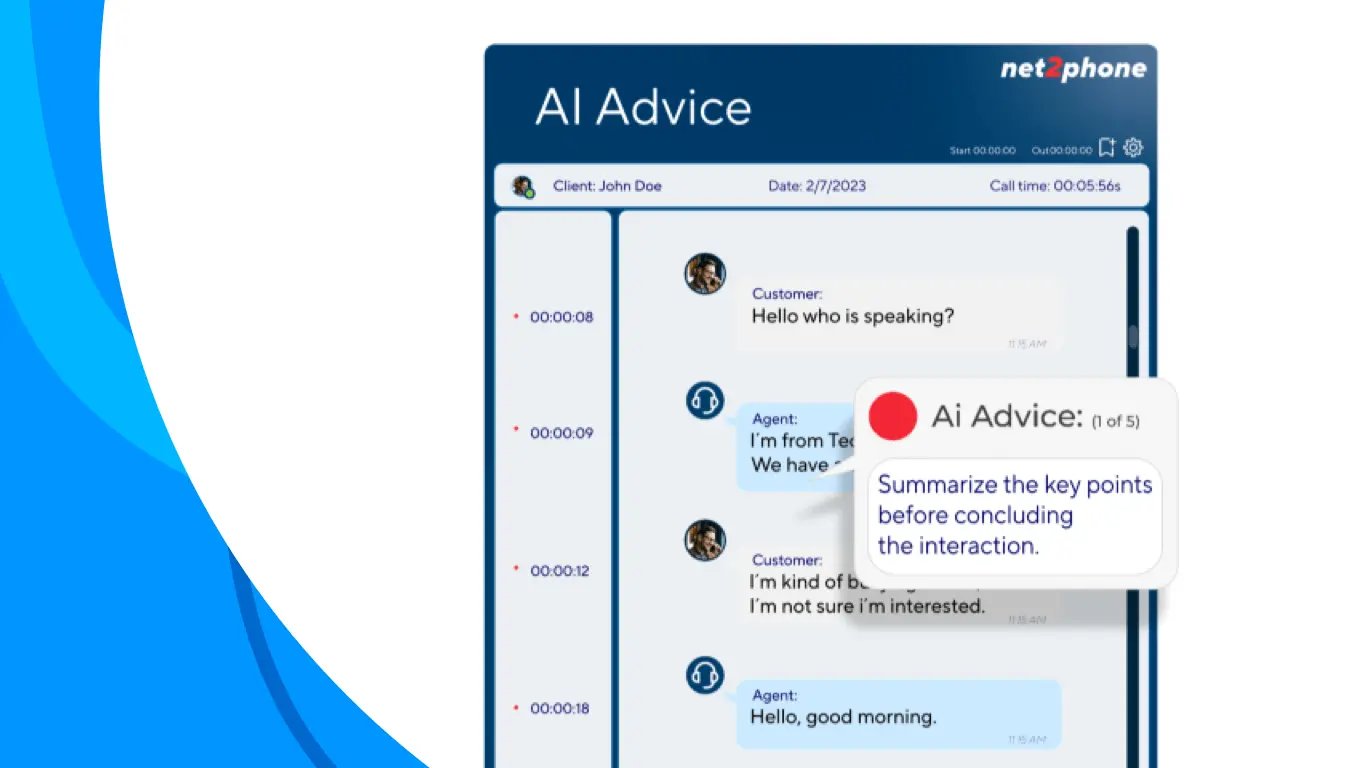
Customer service agents play an important role in the customer experience. Their ability to resolve issues quickly and provide a pleasant experience is crucial. It is no surprise that a significant investment in agent training is reported by 88% of service decision-makers. AI coaching enhances customer service agents' skills and efficiency by providing real-time feedback.
Consider net2phone’s AI tool, which generates coaching notes after any sales or support call. Based on the interaction, AI offers suggestions and guidance on how the dialogue could have been improved. Automating coaching in this way reduces the manager's workload and offers immediate feedback to help improve skills for better interactions.
8. Automate Tasks And Allow Agents To Focus On Conversations
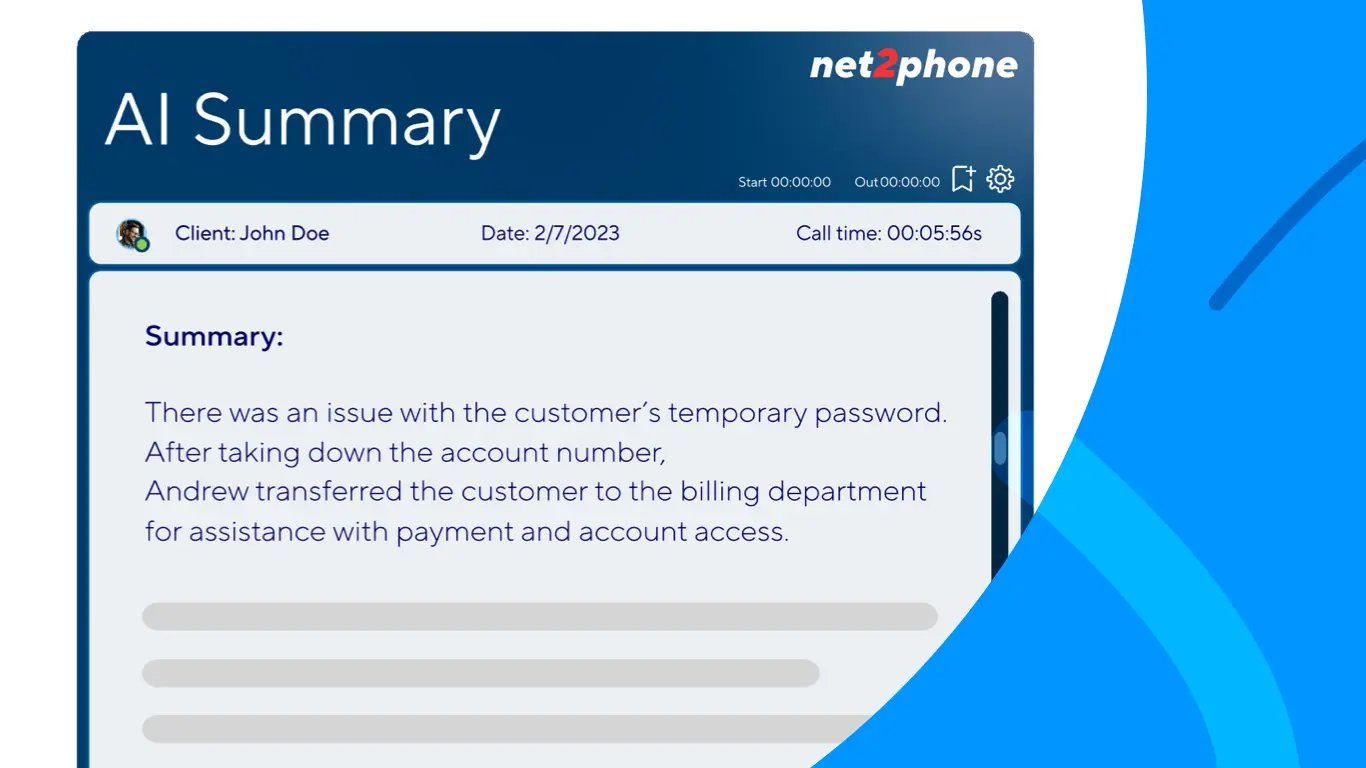
AI plays a pivotal role in liberating agents from repetitive and time-consuming tasks. In turn, agents can concentrate on meaningful customer interactions. AI has the power to automate tasks like call transcriptions, summarizing meeting notes, and writing follow-up emails. AI streamlines administrative tasks.
Consider a scenario in a call center: AI can compile notes from support calls and create concise summaries. With access to these clear and concise summaries, agents can address client needs promptly and provide a more personalized service.
AI-Powered CX: Learning from Real-World Organizations
Businesses across the globe are already utilizing AI to improve customer experiences. Here, we’ll explore how forward-thinking organizations have leveraged AI to revolutionize their CX and how small and mid-sized enterprises (SMEs) can adapt these strategies on a smaller scale.
AI-enhanced Customer Support
Serving millions of customers across the globe, Uber, the ride-sharing app prioritizes customer-centric operations. In addition to utilizing AI for ride-matching, routing, and setting prices based on traffic and demand, the company relies heavily on AI to support its millions of customers.
Using artificial intelligence, Uber efficiently directs customer inquiries to the most appropriate agents for fast resolution. AI also assists Uber's agents by suggesting possible responses to customer inquiries. This comprehensive integration of AI ensures operational efficiency and quality service to Uber's varied customer base.
How Small Businesses Can Replicate Uber’s Customer Support
For SMEs, implementing AI in customer support can be equally impactful.
Even smaller-scale AI-driven chatbots can suggest responses to queries, facilitating more accurate interactions between your business and customers. Additionally, AI tools like sentiment analysis can help guide and support conversations toward positive outcomes.
AI-powered support tools to consider:
- net2phone AI
- Zendesk Bot
- Zoho Desk
Using AI to Tailor Customer Experiences
The Australian airline Qantas uses AI to streamline its operations and CX. A key way they leverage AI is with their mobile app. The airline uses AI to study passengers' past bookings, flight preferences, and status to make personalized suggestions.
For example, the app makes real-time recommendations on things like how to check in, what time to leave for the airport, and what route to take based on the passenger's location.
How Small Businesses Can Replicate Qantas’ Tailored Experiences
Small and midsize organizations can similarly leverage AI to offer tailored experiences the way Qantas does.
By analyzing customer data, preferences, and transaction history, AI can give personalized recommendations and assistance. For instance, an e-commerce retailer can use AI to analyze a customer's purchase patterns and offer personalized promotions or discounts.
AI personalization platforms to consider:
- Insider
- Dynamic Yield
- Amazon Personalize
- Salesforce Einstein
Leveraging AI for Operational Efficiency
Starbucks is an excellent example of a company that leverages AI for its customers’ benefit. Starbucks’s own AI platform, Deep Brew, launched in 2019, has transformed both its internal processes and customer interactions.
Deep Brew automates inventory orders, predicts maintenance requirements, and accurately anticipates staffing needs, ensuring optimal and uninterrupted customer service experiences.
How Small Businesses Can Replicate Starbucks’ Operational Efficiency
While most organizations won’t have the resources to develop their own AI platform, smaller businesses can explore ready-made AI applications that will help them enhance supply chain efficiency.
In the same way that Deep Brew predicts maintenance requirements, pre-packaged predictive maintenance software does the same thing. These solutions help ensure equipment reliability and minimize any downtime that could impact customer experience.
AI-driven Predictive maintenance solutions to consider:
- Fiix CMMS
- Limble
- Oracle loT Service Monitoring
AI-powered workforce management tools are another way SMEs can optimize staffing and ensure there are enough resources to meet customer demands.
AI-powered Workforce Management solutions to consider:
- Deputy
- Quinyx
- TCP Humanity Scheduling
Final Thoughts: The Future of AI and CX
As AI continues to evolve, the future looks promising. Advancements in AI algorithms and data analytics will allow deeper customer understanding and hyper-personalization. This will result in more intuitive chatbots, predictive tools, and tailored experiences. Embracing AI's potential will be pivotal in shaping winning customer experiences.
Ready to elevate your customer experience with AI? Explore net2phone AI, a cutting-edge sales and support tool complete with sentiment analysis, call transcriptions, automated tasks, analytics, and coaching tools.










